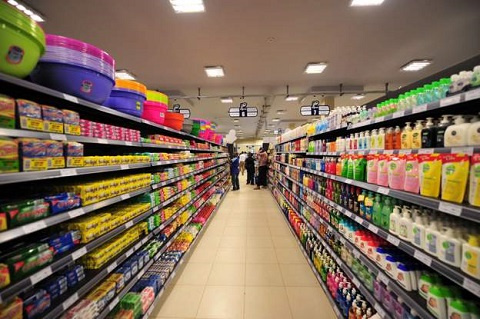
Cutting nose to spite face
“Don’t send it to my mobile wallet, because they will apply E-Levy; forward to my account”
On Thursday, October 13, 2022, I wanted to buy a few items from a part of the Adum commercial area. The cluster of stores, close to the area which had been besieged by taxis and tro-tros displaced by the new Kejetia market, had all been closed.
Advertisement
Surprised, I inquired from an elderly passer-by the reason for the unopened stores. With a bemused expression, he explained that the traders were protesting high taxation from government. Indeed, Ghana Union of Traders’ Association (GUTA) had warned consumers. The strike raised my apprehension for a number of reasons:
That cluster is one of those which typically offers the same type of goods to consumers, with the barest variation. Yet, it serves a good value chain — accommodation, wholesalers/retailers, distributors, potters, transport services, to mention these.
The chain lost revenue while shops remained closed. Within the cluster is the category whose daily existence depends on the menial jobs offered them.
Was the strike punishment for government alone?
Reason
A more crucial reason for my apprehension is that the type of commodities sold there have timelines. Some of the food items under lock may have expired or be close to expiration.
Typically, after the strike, possible expired goods were sold to consumers. Some traders might even have unscrupulously changed date to sell bad food items to the public.
There is a strong undercurrent of cynicism to my apprehension pertaining to GUTA’s strike. These are the traders who increase commodity prices arbitrarily, some even maintaining an exorbitant pricing culture to maximise profit. When the dollar rises, the prices of even oldest stock rocket, hideously disadvantaging consumers.
The most painful aspect is the poor quality of goods offered the consumer by an appreciable cross-section of traders. Most times, the quality of goods is low, especially items from China.
Of course, some local producers are equally guilty of sending shoddy goods to the market — sugar cube that won’t dissolve in water, canned fish that is harder than meat, tasteless milk, to mention these.
The final consumer is thus short-changed diversely not only from the free fall of the cedi against the US dollar, but also from trader avarice and unruly market environment.
Twist
The real twist to the closure is probably its low effect on the final consumer due to the multitude of shopping alternatives.
Due to the mushrooming of stalls, suburbs and residential areas are dotted with commodity shops. Therefore, shoppers were not completely constrained.
Undoubtedly, the traders on strike for high taxation belong to the category of Ghanaians who organise extravagant funerals, weddings and birthday celebrations.
Considering such events, no one would believe that this is a country in dire economic distress. Many Ghanaians, such as the speaker quoted above, who evade tax obligations are the ones who herald free services. Indeed, many who flaunt wealth are equally averse to paying taxes.
Dire times
The entire globe is going through dire times, which clearly show potential for escalation, not relent. Yet, nothing has changed for many
Ghanaians, who turn a blind eye to the increasing global turbulence adversely impacting existence. Just before she resigned, a BBC journalist pointed it out to Prime Minister Liz Truss that her radical financial policies made it impossible for her nationals to pay their September bills. The PM could only apologise.
In the second quarter of 2022, one international financial expert warned that there could be a worsening of the global financial crises. He predicted accurately.
Globally, energy bills are soaring, commodity prices are skyrocketing, amid escalating taxes, compelling people to be extremely frugal. However,
Ghanaians have made themselves an exception. Many seek more money to dodge taxes and environmental responsibility, thus deepening the financial crises.
All currencies are falling before the US dollar; even the mighty Pound Sterling has bitten the dust in the global financial hurricane. The market lightweight the Cedi is flip flopping precariously in liberalised trade, yet one only observes overindulgence in Ghana. The outcome can only be harsh.
Low export, grossly clouded by alarming import trade, compounded by low productivity, have really constrained Ghana.
Yet, there is ever-increasing workers’ demands for higher remuneration, just as there is growing connivance to avoid tax.
Surprisingly, the government is meeting worker demands — but for how long?
A major recourse for government is tax increases. Therefore, instead of closing shops to protest high taxation, maintain open stores to generate revenue, while holding government to pragmatic tax negotiation.
Reminder: Globally, there is constant upwards tax adjustments!
Lecturer, Language and Communication Skills. Takoradi Technical University
Takoradi



